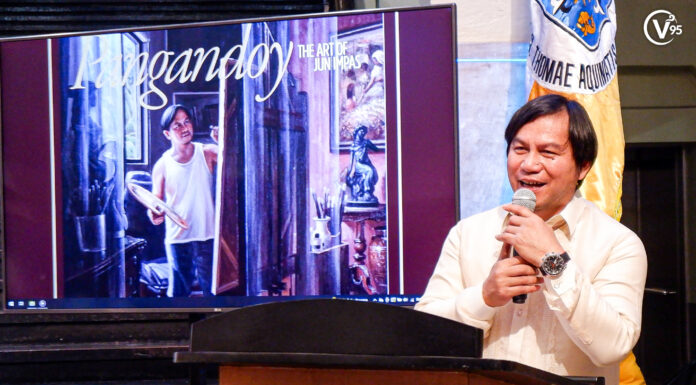THE LAKAS Tomasino Coalition swept the university-wide election last Feb. 16.
Reyner Villaseñor, a Political Science junior from the Faculty of Arts and Letters, got 13,732 votes of the 21,938 or a 62.59 per cent of the total votes cast and was elected president of the Central Student Council (CSC)
Villeseñot told the Varstiarian that he would focus on student rights.
“I want CSC to be a real student-centered government that gives students not only what they want but also what they need,” he said. “We can only achieve this by establishing better tie-ups with the administration and the local student councils.”
“The CSC would not exist if not for these local student councils,” he added. “Their role is important in improving the welfare of the students and the University.”
Villaseñor, comes to the CSC at a troubled time as Reinald dela Cruz, the incumbent CSC president, was removed from office for reasons the Office of Student Affairs refuses to disclose.
Villaseñor said that he would try to bring back students’ trust to the CSC by ensuring transparency through the disclosure of the council’s expenses.
He also said he is open to criticisms.
“I challenge students to keep our campaign fliers so they would know our thrust for the improvement of the University and whether or not we are fulfilling our promises,” he said.
He added that his party will extend a hand to local student councils, especially those that are not affiliated with them.
In addition, Villaseñor said that students are free to criticize them and go directly to the council if they feel that their leaders are not delivering on their promises.
Other elected Lakas Tomasino candidates were Pharmacy junior Joyce Antoinette Ventura (vice president), Accountancy junior April Joy Rodriguez (secretary), Commerce Economics junior Jonet Sanalila (treasurer), Civil Engineering junior Angelo Salvador Cachero (auditor), and Advertising junior Jules Benedict Lim (public relations officer).
Electronic voting
Perhaps an indication of the troubled state of the CSC was the large number of abstentions.
Of the 20 colleges and faculties who participated in the election, the Faculty of Civil Law recorded the highest number of abstain votes (37.26 per cent) f.ollowed by the Faculty of Arts and Letters (36.37 per cent), while the College of Nursing had the lowest abstain votes (0.19 per cent).
“The high humber of abstentions reflects the (lack of) trust on candidates,” Central Comelec chairman Rodolfo Nicolas Jr. said.
Meanwhile, the Faculty of Civil Law and the College of Nursing conducted their election through electronic voting (e-voting).
Nicolas said that since the e-voting did not reportedly encounter any serious problem, the Comelec might expand the system to other colleges next election.
This year’s election took off with series of changes starting with the Student Election Code of 2007, which merged the Omnibus Election Code of 2004 and the Fair Election Act of 2005, the mandatory debate among local political parties and the central political parties, and the vote awareness campaign organized by the CSC, Central Comelec and the Student Organization Coordinating Council.
















